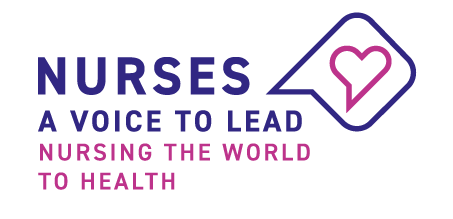Oncology services during the COVID-19 pandemic, Ireland
I work as an Advanced Nurse Practitioner (ANP) in Medical Oncology in the University Hospital, Limerick, Ireland. The service conforms to the Irish National Cancer Strategy 2017-2026, which stipulates the need to develop and promote effective survivorship care pathways for cancer patients.
The patients I work with include people with a diagnosis of testicular cancers or lymphomas, who are on follow-up or surveillance under the consultant medical oncologist. My role for these patients includes the monitoring and interventions for long-term and late effects of cancer and its therapies, including:
* Surveillance and detection of recurrent cancers
* Encouragement of self-management
* Education on the recognition and prevention of new cancers
* Monitoring and interventions as needed for psychological and social effects.
Since the arrival of COVID-19, I have had to change my practice and develop a new service to review and support my patients who are in isolation shielding from the virus.
During the COVID-19 pandemic, our cancer services remain fully functional. However, to reduce the number of people coming to our outpatient clinics and minimise the risk of community transmission of COVID-19, we created an ANP virtual medical oncology clinic to provide telephone consultations.
To set up and run the service we contacted every patient by telephone prior to their original clinic appointment informing them of the change in practice and gaining their consent.
They were given a virtual clinic appointment for a consultation with me, and those patients who needed to have bloods taken were allocated an appointment at a dedicated phlebotomy service. Prior to attending to have their bloods taken, patients are screened for COVID-19 by a questionnaire to rule our any signs and symptoms of the virus, and all patients who attend the unit have their temperature checked on site before entering the clinic.
The telephone consultation goes ahead once all the blood results and medical notes are available.
Patients weigh themselves at home and are questioned on symptoms to identify any recurrence of their cancer. They are also given information about how to examine themselves, health promotion advice and offered support and further information when appropriate.
If there is any evidence that there is an active disease present, patients are followed up appropriately after discussion with the consultant medical oncologist.
The patients have my contact number and asked to ring me if they have any concerns or develop any new symptoms in between appointments.
The consultations are documented in medical notes and a letter is sent to their general practitioner and any other relevant consultants involved in their care.
The clinic has been well received by patients, who have reported feeling safe, supported and reassured.
Team support
Since the arrival of COVID-19 my colleagues and I have adopted a strategic approach to the changes we have made. We are having regular debriefing meetings to ensure that we are communicating effectively.
Nurses are supporting each other in this difficult time: ours is a close team and we provide a supportive environment for staff to openly express their concerns and celebrate our successes: during this time, we have arranged hot lunches to boost morale.
We have managed our stress through our debriefings with colleagues and by checking in with our families and friends on a daily basis to ensure everyone is OK.
COVID-19 has definitely meant we have had to step up to the challenge. I have taken on a lot more responsibility, so I am more aware than ever of my scope of practice and that l must provide the safest care.
It has been gratifying that our work is widely acknowledged in our community and that everyone has been extremely supportive
When the pandemic is over, I know I will be exhausted. Getting back to normality will be difficult and will require an audit of the service to justify going back to previous ways of working. But we are confident we will have provided a good service to patients and we will not have a backlog of patients waiting to be seen.

